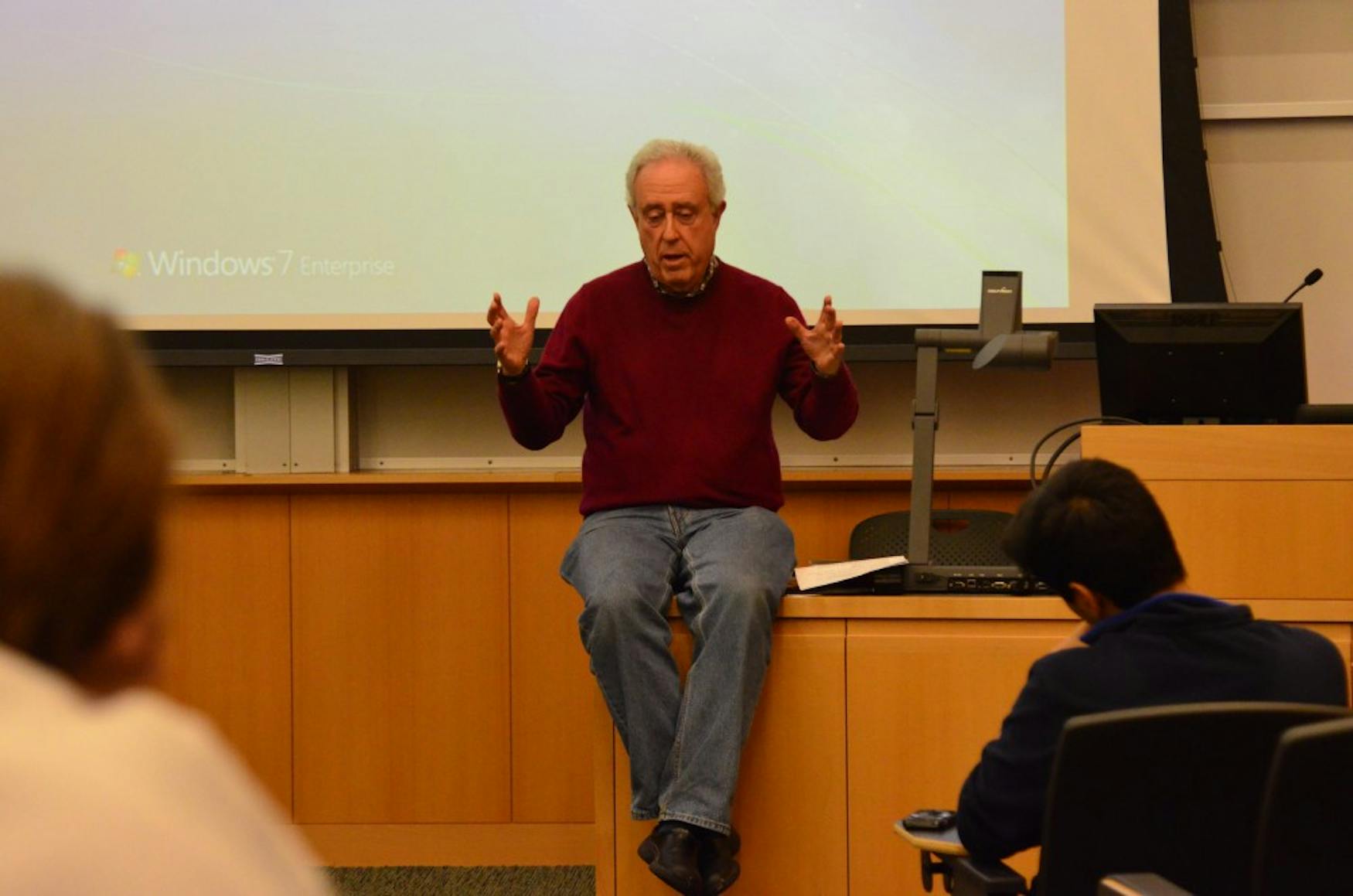Alum discusses his film about Hollywood blacklist
At an event on Wednesday evening, Brandeis alumnus, Arnie Reisman ’64, outlined the making of his Cold War documentary, When Red Was a Scary Color. The documnetary tells a story of the Hollywood blacklist of the late 1940s and early 1950s.
Reisman is a journalist, documentarian and poet laureate of Martha’s Vineyard.
Reisman’s talk focused on how his documentary came to be and provided a timeline of information about this time period. However, he told a few anecdotes as well. He began his talk by discussing the book that served as the inspiration for his documentary: Hollywood on Trial by screenwriter Gordon Kahn.
Kahn was an author and screenwriter who was blacklisted. Reisman was working for Boston’s public broadcasting station, WGBH, with Tony Kahn, Gor-don Kahn’s son.
Although Tony Kahn was American, he told Reisman that he had grown up in Mexico. Reisman was confused by this, and Kahn told him that it was because his father was on the Hollywood blacklist, a list of members of the film industry who were banned from working in Hollywood because they were believed to have Communist affiliations.
Reisman did not have any knowledge of the Hollywood blacklist and decided to explore deeper. His first mission was to get permission for the film from then California Governor Ronald Reagan. An interview with Reagan was of utmost importance, because during the time of the Hollywood blacklist, Reagan was the president of the Screen Actor’s Guild. Reisman described in great detail his first phone call with Reagan. In fact, Reagan was so enthusiastic about the idea for the film that he set up an interview appointment right away. Thus, filming began, and Reisman and his crew set up meetings around Hollywood with each member of the Hollywood Ten. The Hollywood Ten were important members of the blacklist as they were the ones who were brought in front of the House of Representatives’ American Activities Committee in October 1947. They were sentenced to prison for six months in 1948.
Among the Hollywood Ten were screenwriter Lester Cole and producer and director Adrian Scott, both well-known members of the industry.
Through Reisman’s interviews with these members, he was able to provide a window into an overlooked part of history while the members of the group were still alive.
One fascinating anecdote was about how the House of Representatives’ American Activities Committee tricked members of the blacklist into telling the truth by having spies from the FBI pose as psychiatrists to try to pry people into telling the truth.
One such actor, Sterling Hayden, confessed to the jury that he was guilty after he was arrested, but once he found out about the FBI, he immediately recounted his testimony, citing that he was provoked by the said “doctor” to tell the truth.
Reisman’s talk provided an informative glimpse into the injustice that was the Hollywood blacklist. It is hard to believe that the American legal system forced innocent, free-thinking minds into jail solely for their personal beliefs. Reisman’s documentary shone a light on this injustice for generations to come.
The event was sponsored by the American Studies department.




Please note All comments are eligible for publication in The Justice.